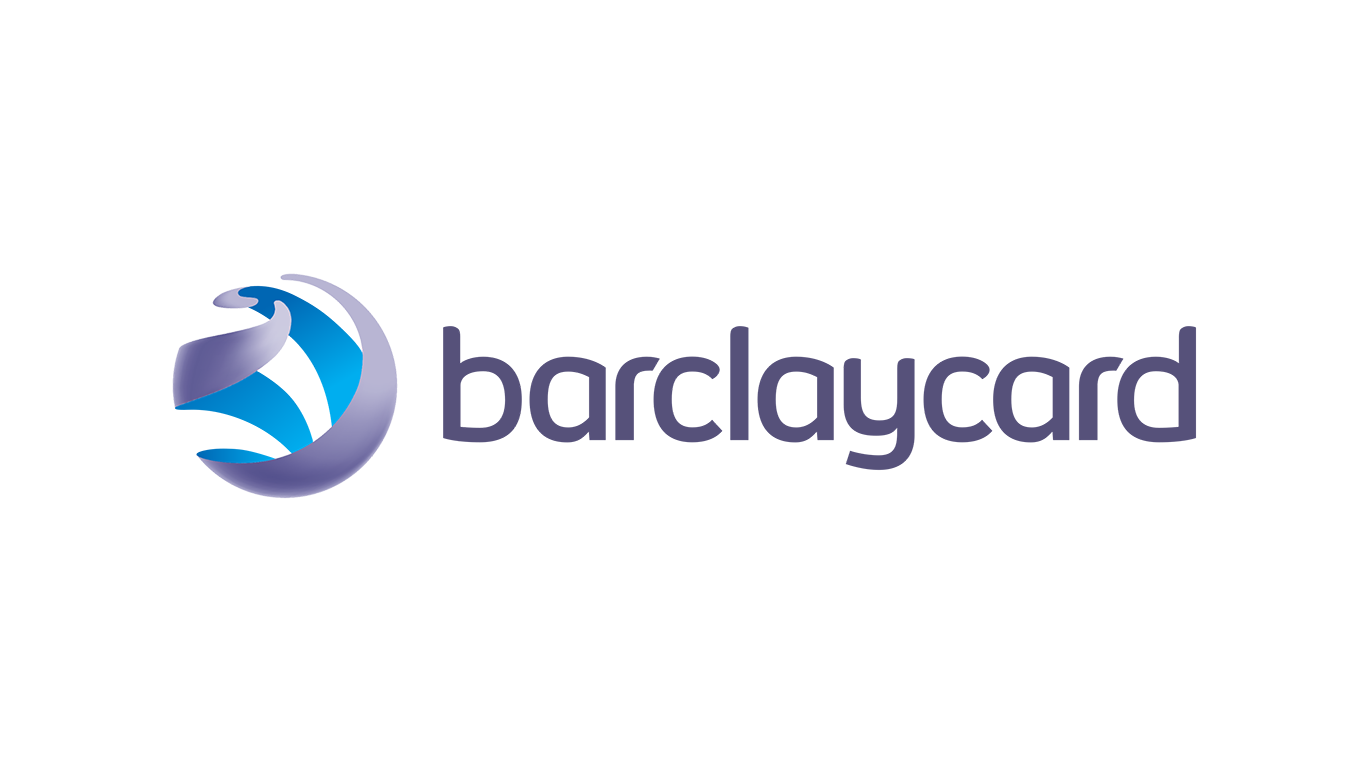Published
- 06:00 am

New data from Barclaycard Payments on the ‘subscription economy’ sheds light on how demand for sign-up products and services is evolving following growth during the pandemic – and the impact on consumer spending as the cost of living takes its toll.
The third annual study from Barclaycard Payments – which processes £1 in every £3 spent on credit and debit cards in the UK – found two thirds (67 per cent) of Brits remain signed up to at least one digital or direct-to-door service and many see them an important tool to help manage finances (cited by 34 per cent) at time of rising costs.
While proprietary Barclaycard data shows spending on subscriptions declined 4.2 per cent in June 2022 when compared to May 2022; almost four in 10 (38 per cent) Brits believe subscriptions offer good value for money, and 37 per cent feel they help them to be more organised.
Three-fifths (59 per cent) of Brits say they are signed up to subscriptions for exclusive access to content. Meanwhile, 45 per cent believe subscriptions offer a personalised experience. Other benefits appealing to shoppers include the ability to try new items which they may not normally purchase (55 per cent), convenience (42 per cent) and reassurance that key products will be delivered regularly (42 per cent).
Flexible and convenient subscriptions
As the cost of living continues to rise, almost four in 10 (38 per cent) consumers cited good value as the most important factor when signing up for new subscriptions, followed by a free trial (32 per cent), free delivery (27 per cent) and flexible contracts (21 per cent).
Barclaycard Payments found that the average UK household spends £41.70 a month on subscription services, compared with an average of £51.65 in 2021, and £45.50 in 2020.
Despite consumers cutting back on non-essential spending, analysis of subscription categories over the last three years found that most sectors are stabilising after substantial growth during the pandemic – when restrictions meant more time was spent at home.
The business response
As consumer preferences change, the research found that subscription providers are responding to the challenges of the rising cost of living in different ways. While over half (51 per cent) of businesses offering subscriptions plan to cut prices on their products, almost as many (47 per cent) intend to increase them due to rising inflation and supplier costs. Three in five (61 per cent) plan to launch lower-cost subscription products and services to give customers more choice, and two-thirds (65 per cent) will do this in time for key retail moments, such as Black Friday.
Harshna Cayley, Head of Online Payments, Barclaycard Payments, said: “As the cost of living continues to increase, we’re seeing consumers engage with subscriptions in new and smarter ways. Our data not only shows the importance consumers continue to place on subscriptions but also highlights how the benefits of recurring payments play an important role in the management of day-to-day finances.
“Value for money, convenience and control will continue to be important factors for cost-conscious customers. This means to remain successful in the subscription economy, businesses need to focus on going beyond these current demands. Added extras, such as exclusive content, may no longer cut it, so providers need to ensure contracts and delivery models remain flexible too.”
Related News
- 02:00 am

Financial crime teams have long struggled with seamlessly integrating their internal watchlist data into their due diligence work. Data is captured from different sources, such as financial intelligence units, and is often held in disparate databases or unmanageable spreadsheets. And while banks wish to screen these lists as a single, unified source, they still expect them to be appropriately segregated. smartLISTS allows firms to manage and update their own existing internal watchlists and develop new proprietary watchlists, which can in turn be used to match against future and existing clients for KYC screening.
“smartKYC’s software already derives precise KYC intelligence from public (open web), professional (subscription) and private sources,” said Dermot Corrigan, CEO of smartKYC. “With the addition of smartLISTS, banks can now feel confident that not only is their internal data being managed properly, with the appropriate level of security, partitioning and revision history, but also that they are being screened consistently.”
With smartLISTS, firms are able to manage or ingest their own lists of individuals or entities.
Hugo Chamberlain, COO of smartKYC said: “Each bank is different in its approach to KYC screening and although many will subscribe to the same paid KYC sources, internal lists by their very nature are unique to each bank. Having a user-friendly and structured way to manage all the various internal lists is of the utmost importance.”
Furthermore, internal lists can have more than one function; not just another watchlist of high-risk people and companies from a financial crime point of view, but it could be people and companies that are forbidden from a conflict-of-interest angle, a list which will be unique to each bank.
For example, one bank may wish to screen all its employees against a smartLIST of its vendors and vice versa. Through smartKYC’s innovative network analysis of unstructured data on the web, it can find any mention of involvement with an employee and a specific vendor on that smartLIST.
In another example, a wealth manager may take the same approach by screening its client base against a smartLIST of prospective clients to see if there are any existing relationships and, on the positive side, see if there is potential for introductions by their clients.
Related News
- 03:00 am

FDM Group, a professional services provider with a focus on IT and Operations, has partnered with nCino, a pioneer in cloud banking and digital transformation solutions for the global financial services industry, to provide specially trained individuals to help fill an increasing labour demand brought on by nCino’s prolific adoption in the banking industry.
“nCino’s Bank Operating System® is used in a growing number of financial institutions globally and partnering with FDM was a natural fit given their services and reach,” said Davis Brannan, EVP, Global Channels at nCino.
“With our fast-growing footprint, we are seeing an increased demand for certified nCino professionals. Our cloud-based technology is being utilised in financial institutions worldwide, and FDM Group’s mature international programmes are quite appealing,” said Mr. Brannan. “Training and certifying their skilled, accredited specialists on the nCino platform will be a great benefit to both our customers and partners.”
FDM Group is the market leader in the Recruit, Train and Deploy industry, placing IT and business professionals with clients across myriad business sectors, working to fill speciality skills gaps and build a talent pipeline for the future. They will provide training to equip nCino-certified consultants to become proficient in software development, software testing and business analysis.
The programme kicked off earlier this year and the first cohort of professionals landed in May at a top five UK financial institution. This group has been focusing on nCino’s Commercial Banking solution, with further nCino solution training and certifications planned for future engagements.
“Digital transformation is imperative across all industries, especially the banking sector, and this is boosted by highly trained individuals passionate about a career in technology,” said Andrew Brown, Chief Commercial Officer at FDM Group. “We are delighted to be partnered with nCino, bringing the highest quality software into our training in order to provide highly sought-after industry skills that benefit both trainees and the firms they will go on to work for.”
“We are pleased to add FDM Group as one of our partners to help source and train new talent,” said Mr. Brannan.
Related News
- 02:00 am

Shieldpay, the market leader in secure digital payments, has today announced the appointment of Sophie Condie as Chief Operating Officer.
The addition of Sophie to the Shieldpay C-Suite further develops the company’s focus on delivering the best outcomes for customers as part of its overarching customer-first strategy. In her role, Sophie will continue her work transforming Shieldpay’s day-to-day operations, driving efficiencies and improving performance across the business as it continues to scale and grow. Sophie will work closely with the wider Shieldpay leadership team and will report directly to CEO, Peter Janes.
Sophie has been with Shieldpay since September 2021, initially as Director of Operations, before being promoted into her current role on the business’ executive leadership team, today. Prior to joining the business, Sophie amassed a wealth of experience across banking and fintech, holding senior roles with Royal Bank of Scotland, Barclays and, most recently, leading operations at Form3 Financial cloud, delivering end-to-end Payments as a Service.
Sophie Condie, Chief Operating Officer, Shieldpay, comments:
“Since joining the team here at Shieldpay, it's been the most incredible transformational journey, being surrounded by supportive and ambitious colleagues has been integral to the successful implementation of new ways of working to deliver operational efficiencies and excellence.
“I am looking forward to our continued success in the fintech space, disrupting legacy payment capabilities and securing the world's most complex, contingent payments.”
Peter Janes, CEO, Shieldpay, adds:
“This is very much deserved. Since day one, Sophie has made a huge contribution to the scaling of operations within Shieldpay but she has also demonstrated drive and determination to get Shieldpay where we deserve to be.
“She cares about this company and our team a lot and that contributed enormously to this decision. Shieldpay has never had a COO and I couldn’t be happier that we are promoting Sophie to take on this crucial role alongside myself and the board. Exciting times ahead.”
Related News
- 09:00 am

Ecospend, the open banking technology provider is proud to announce it is partnering with CDER Group, one of the UK’s foremost Enforcement and Debt Resolution companies, to provide its account-to-account ‘Pay-by-Bank’ solution.
Collecting over £250m of unpaid Central and Local Government debt each year, CDER Group is using Ecospend’s ‘Pay-by-Bank’ solution to provide an additional, easy-to-use, secure payment channel, via the customers' own mobile or online banking service, without the need to share personal information or card data.
CDER Group will use this platform to receive direct payments from customers with every transaction authorised by bank-level security thus enabling a more secure payment process, further reducing the risk of fraud.
James Hickman, CCO, Ecospend.
“We’re delighted to have partnered with CDER Group. To be rolling out Pay-by-Bank with such an important market leader in the debt recovery sector is another great step forward for Ecospend. The benefits of our account-to-account payments are clear for CDER Group and they can now offer customers another, an easy-to-use payment solution that transfers funds instantly, does not require entry or transmission of personal data or card information and will significantly reduce payment transaction costs. We’re excited to get started on building another gold standard open banking use case that will demonstrate the value of this technology.”
Nick Tubbs, CEO, CDER group
“We are pleased that our partnership with Ecospend has enabled us to further expand our payment options to customers and that this provides them with such an easy-to-use, highly secure and convenient payment method requiring no card or personal details to be entered.”
Related News
- 07:00 am

4G Capital, an award-winning neobank powering micro and small business growth in Africa, announced their go-live on Mambu's leading cloud banking platform.
4G Capital provides unsecured business loans along with enterprise training and access to digital solutions. Mambu’s platform will enable the neobank to scale and expedite its digital journey to meet customer business needs.
4G Capital has delivered more than 1.75 million loans since its inception in 2013 and decided to move to a cloud-native banking platform to help facilitate its ambitions to scale. The neobank conducted significant market research and screening before selecting Mambu; the platform’s flexible and composable technology approach enables 4G Capital to expand its customer base across Africa and grow its financial services portfolio.
4G Capital also prioritised brand compatibility in their search, including shared values and socially conscious goals. Both Mambu and 4G Capital share the same mission of bridging the finance gap. Since 2013, 4G Capital has been on a mission to unlock human potential for good, enabling traditionally excluded micro and small enterprises to access funding with products designed to increase clients’ take-home earnings, grow their businesses and improve access to vital services. This is achieved through a blend of relationship management with proprietary AI technology to minimise default risk.
Mambu aims to enable billions of people to have access to modern banking experiences and started in 2011 servicing micro-lenders, primarily in emerging markets in Africa. Today, Mambu has 77 million daily users and over 230 banks and financial institutions as customers.
Wayne Hennessy-Barrett, Founder and Chief Executive Officer at 4G Capital, said: “Our investment in Mambu enables us to accelerate our mission of growing businesses with capital and knowledge. Mambu provides a best-in-class platform that fits into our existing digital architecture and business processes. We were impressed with their team and working culture, which aligned with our own focus on pioneering innovation and customer success. We share the belief that customers must be at the heart of all that we do. Bridging the finance gap for micro and small businesses is not only about ‘access’; it is a covenant for success. We look forward to maximising the capabilities of Mambu as our systems and operations evolve and grow.”
Peter Richmond, VP Customer Success at Mambu, added: “4G Capital and Mambu are aligned both culturally and historically. Our partnership means we can close the finance gap to create better banking experiences for groups that have been historically underserved. The micro and small enterprise finance gap across the world is enormous, despite this sector is a key economic driver globally. We are committed to helping 4G Capital support entrepreneurs everywhere in achieving their potential.”
The roadmap for 4G Capital, supported by Mambu, sees a range of new products and services to serve micro and small enterprises, scaling across existing markets of Kenya and Uganda, then into new emerging markets both organically and with channel partners.
Related News
- 08:00 am

IDnow, a leading European identity proofing and digital identity provider, has successfully arranged a new debt facility from funds and accounts managed by BlackRock that provides up to €60 million in financing. The debt facility will enable IDnow to leverage its existing market-leading identity platform. The company intends to use the capital to scale investments across a range of strategic initiatives including the introduction of new identity-proofing solutions, continued geographic expansion, and potential acquisitions.
IDnow was founded in 2014 in Munich and offers a comprehensive suite of identity proofing solutions addressing a wide range of mission-critical use cases from low to high assurance levels. IDnow serves over 900 sector-leading enterprise customers across multiple verticals with coverage of 195 countries. The company is a demonstrated technology leader, with advanced AI-driven capabilities and a vertical orchestration platform maximising conversion and accuracy.
Andreas Bodczek, CEO of IDnow states: "We are proud to have been able to raise financing to support IDnow’s business objectives to further grow the company. Securing this debt facility from BlackRock reflects their high confidence in the strength of our business. The funding comes at the perfect time for IDnow to continue driving our ambitious growth strategy and we look forward to working with BlackRock."
Joe Lichtenberger, CFO of IDnow added: “This financing facility caps a string of commercial successes that continue to propel IDnow’s strong growth. The facility will allow us to continue investments in our growth areas. BlackRock is a great partner for IDnow going forward.”
Related News
- 03:00 am

Finastra announced today that The Co-operative Bank has selected Finastra Kondor in the cloud, available via Microsoft Azure, to upgrade its treasury infrastructure and automate manual reporting and processes. The solution, integrated with the apps CloudMargin and eflow via Finastra’s FusionFabric.cloud platform, will provide the bank with a modern, scalable and cost-efficient ownership model as well as access to ongoing upgrades and innovation.
“Moving from an on-premises model to a cloud-based managed service is a big part of our operational strategy for treasury activity,” said Gary McDermott, Treasurer at The Co-operative Bank. “With Finastra’s solution and the speed and flexibility offered by the cloud, we can continue to meet business requirements whilst ensuring regulatory compliance. Finastra has played an important role in our Treasury systems journey and we look forward to our continued collaboration to drive the digital treasury of the future.”
Finastra Kondor supports open integration across all treasury trading instruments and third-party and proprietary analytics tools. It enables banks to trade high volumes of treasury and complex derivatives and options through an open platform which, via open APIs and datasets, unlocks the power of collaboration and innovation. The Co-operative Bank also uses Fusion Risk for treasury credit risk management and Finastra’s banking technology for payments services.
"By moving to the cloud, The Co-operative Bank can pursue continued growth and innovation in the UK market,” said Wissam Khoury, EVP Treasury and Capital Markets at Finastra. “In addition to being a highly successful consumer and business bank, The Co-operative Bank is a leader in ethical banking and is closely aligned with Finastra’s focus on placing environment, social and governance (ESG) factors at the heart of our strategy. We are excited to support the bank with enhancing its treasury operations and exploring possibilities to collaborate on future ESG activities.”
“Through FusionFabric.cloud, Finastra is orchestrating an open, collaborative and innovative financial services ecosystem,” said Shilpa Bangera, Chief Revenue Officer, Platform at Finastra. “By integrating with specialized apps, CloudMargin and eflow via our platform, The Co-operative Bank will benefit from additional functionality such as automated reports, reconciliation, regulatory reporting and collateral management.”
Related News
- 01:00 am

Cornerstone VC, born out of black-led angel group Cornerstone Partners, has launched a £20m fund to invest in exceptional entrepreneurs in the UK from diverse backgrounds.
The fund will focus on tech-enabled companies at the pre-seed and seed stage, typically investing initial cheques of between £250k and £1m with capital reserved for follow-on funding. It plans to invest in up to 40 companies with a significant proportion based outside of London. In an innovative ‘twist’ on the traditional VC model, Cornerstone’s angel network will also receive a share of the fund’s profits via carry participation.
Cornerstone VC’s mission is to establish a leading VC firm with a diversity-led investment strategy that unlocks outperformance and delivers returns for investors. Building upon the findings of its research report - Access to Venture Capital (2021) - Cornerstone VC will target management teams with inherent (such as age, gender or ethnicity) and acquired diversity (social capital) and address the equity funding gap for entrepreneurs that are too often overlooked and underestimated by the wider funding community.
Cornerstone VC is led by Rodney Appiah, Founder and Managing Partner, alongside partners Edwin Appiah and Wilfred Fianko. Rodney co-founded Cornerstone Partners in 2016, is a non-executive director of UKBAA and Conduit Connect, and was formerly an investor at BGF and Foresight Group. Recent investments from the team’s pre-seed angel portfolio include ByRotation, Passionfruit, Hutch and MoonHub.
BGF, the UK’s most active investor of growth capital and The Hg Foundation, a grant-giving charity with a mission to remove barriers to education & skills in technology, both led the first round close, as well as others including Atomico, one of Europe's leading VC funds focusing on Series A and beyond. Other investors include Nic Humphries and several senior partners from Hg, a leading software and services investor, as well as other individual investors including former BVCA Chair Neil Macdougall, Scott Mackin, Jamie Broderick, Stefan Ericsson and Sidumiso Sibanda.
Rodney Appiah, Managing Partner at Cornerstone Partners, comments: “We are on a mission to put teams at the heart of our investment approach, believing diversity is key to driving outperformance. We are looking for businesses that are intentional about team composition, can excel in high-growth environments and are truly obsessive about execution. People first, software second.”
“Contrary to perceptions around a pipeline problem, we don’t see any evidence of that. We meet more than 500 diverse founder-led businesses a year and our own data indicates that there is a growing pipeline of high growth, innovation-led, investment opportunities led by diverse founders, particularly at pre-seed and seed stage requiring further institutional investment.”
Rodney has served as a committee member for Lloyds Banking Group’s Black Business Advisory Committee, Innovate UK’s Credit Committee and the London Chamber of Commerce and Industry’s Black Business Association. He previously chaired the CBI’s London Under 35 Committee.
Edwin currently serves as an IC member of Imperial College's Enterprise Fund and was a former International Banker at Coutts, advising more than 100 owner-manager businesses across US and Europe.
Wilfred currently serves as a board observer at a leading LSE Listed Private Equity firm in the UK and was formerly a senior management consultant at UBS and KPMG, specialising in financial services transformation.
Stephen Welton, Executive Chair, BGF said: “We are delighted to be backing Rodney, a BGF alumni, and the team at Cornerstone VC in the launch of its ground-breaking seed-stage tech fund, which complements BGF’s established minority investment for small and mid-sized growth businesses.
“BGF is actively committed to supporting a targeted range of activities where the objective is to make a real and meaningful difference to broader representation in the investment and entrepreneurial communities. We are very encouraged that the work we have done supporting female entrepreneurs has resulted in us being the most active investor in women-led scaleups in the country.”
Nic Humphries, Senior Partner and Executive Chairman at Hg, said: “Hg has over 20 years' experience in partnering with and rapidly growing innovative software businesses. This experience has demonstrated that diversity in leadership often leads to better investment and business decisions. Diversity in the technology sector continues to be a priority for us, the businesses we invest in and is also at the heart of The Hg Foundation. As such my colleagues and I are delighted to support the Cornerstone team and we look forward to working together.”
Related News
- 06:00 am

Trading Technologies International, Inc. (TT), a global provider of high-performance professional trading software, infrastructure and data solutions, announced today that the firm successfully began offering clients access to the popular Nifty equity derivatives through NSE IFSC-SGX Connect (the Connect), a new joint initiative between Singapore Exchange (SGX Group) and National Stock Exchange of India (NSE) launched on Friday, July 29. The Connect – a collaboration in trading of India’s stock index-based products – is a prominent achievement for India’s first International Financial Services Centre (IFSC) known as GIFT (Gujarat International Finance Tec) City in Gandhinagar.
The Connect, which was officially launched by Indian Prime Minister Narendra Modi, enables both international and domestic market participants to take a position on India’s equity markets through futures based on the Nifty 50. International members of SGX Group and domestic clients of NSE IFSC can trade and access real-time trading data of Nifty contracts via SGX Group’s derivatives trading infrastructure in GIFT City.
Under the Connect, all orders on Nifty derivatives placed by SGX Group members are routed to and matched on the NSE-IFSC order matching and trading platform. As one of the first technology providers to offer international market participants access to the Connect, Trading Technologies is giving global banks and other major financial institutions that use the TT® platform seamless access to Nifty equity derivatives alongside products from more than 50 other major international markets, including SGX Group.
TT EVP and Chief Revenue Officer Guy Scott said: “We are delighted to be among the first technology providers to offer day-one global access to the benchmark Nifty products under the innovative new trading regime in India’s GIFT City. We’ve seen strong demand for this access from many of our biggest global bank clients, which serve institutional investors that incorporate the Indian equity markets as part of their global macro-economic portfolios. We’re also pleased to build further on our longstanding relationship with SGX Group and support its diverse product offering through the new Connect initiative.”
Pol de Win, Head of Global Sales & Origination, SGX Group, said: “We are excited that the Connect has now gone live, enabling direct and efficient access for international and domestic investors to trade Nifty futures. With an enhanced pool of liquidity from all over the world, we are optimistic it will support a more vibrant capital market in India. This has been a tremendous undertaking and we are pleased to roll this innovative pathway out with the efforts from Trading Technologies and our members.”









